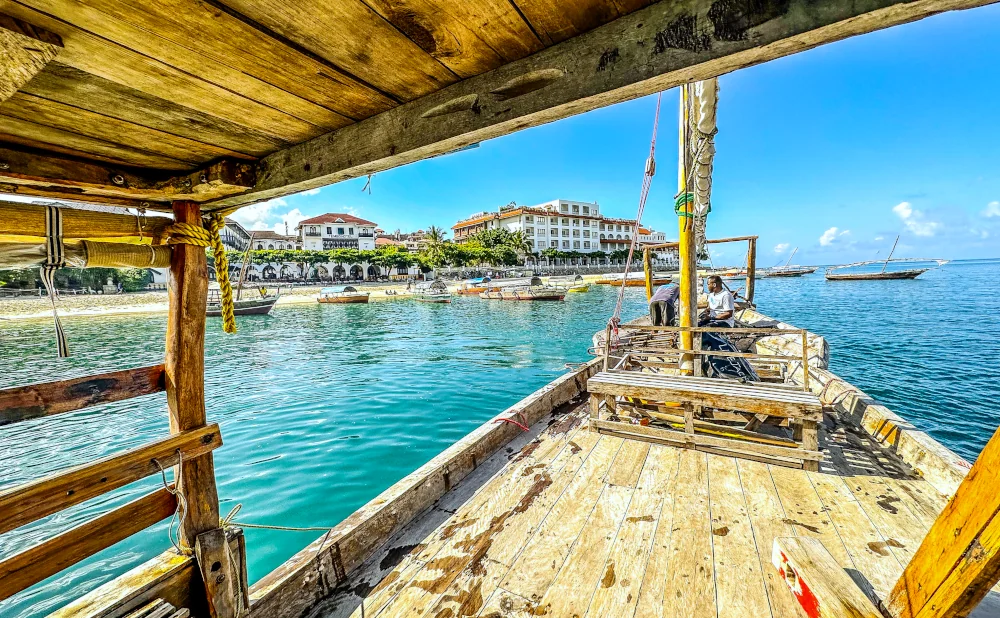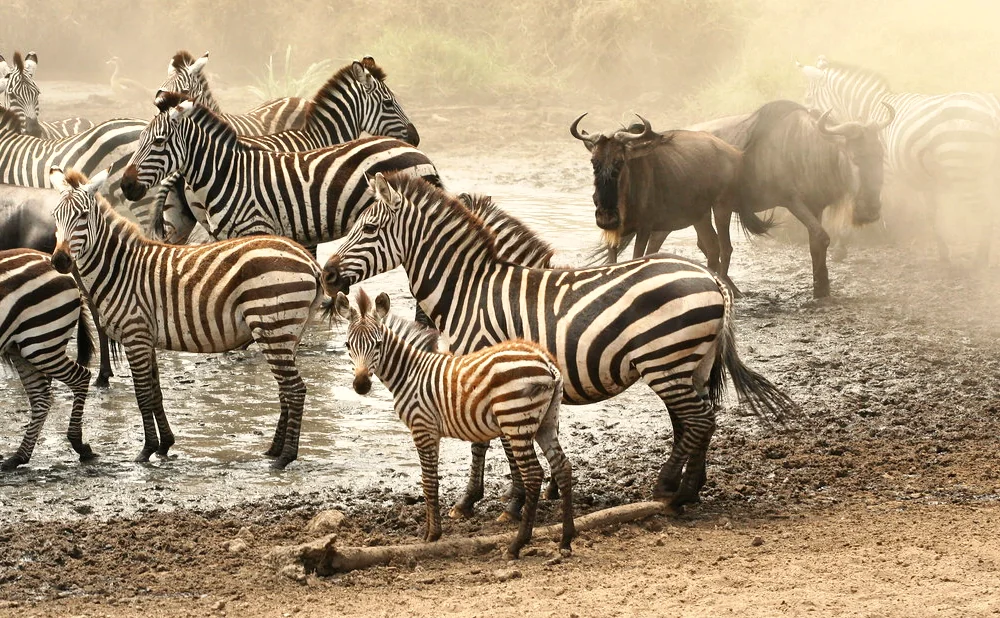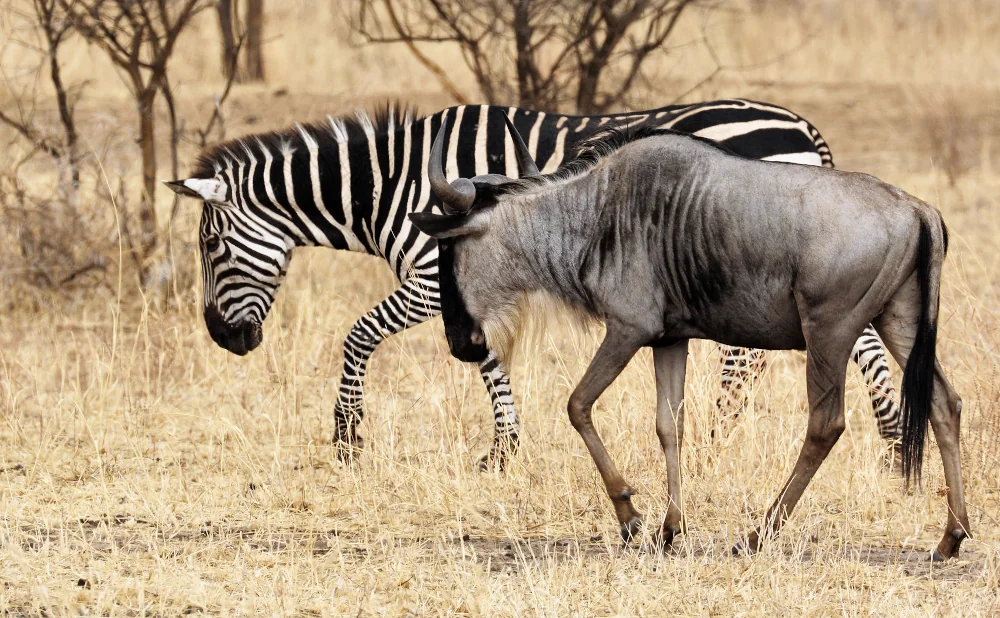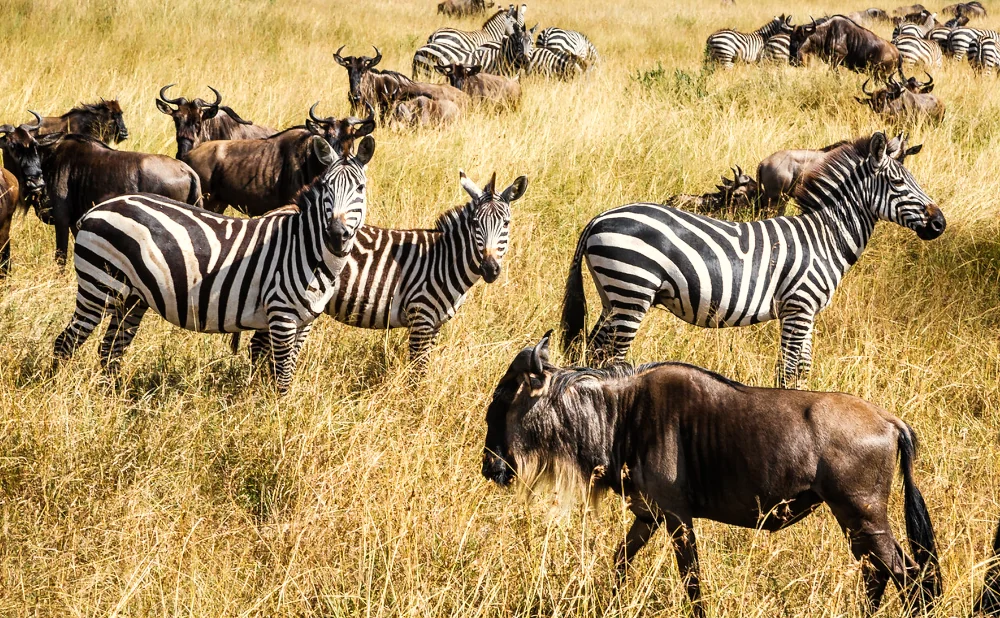Exploring the Rich Cultures of Tanzania
Tanzania, a country in East Africa, is a vibrant tapestry of cultures. It's a place where over 120 ethnic groups coexist, each contributing to the country's rich cultural heritage.
The people of Tanzania are as diverse as the landscapes they inhabit. From the Maasai pastoralists in the Serengeti to the Swahili-speaking communities of Zanzibar, each group has its unique customs and traditions.
Yet, despite this diversity, there's a shared sense of Tanzanian identity. This unity is largely due to Swahili, the national language, which serves as a cultural bridge connecting the various ethnic groups.
In this article, we'll take you on a journey through Tanzania's rich cultures. We'll explore the music, art, cuisine, and traditions that make this country so unique. We'll also highlight some famous people from Tanzania who have made significant contributions to global culture.
So, whether you're a cultural enthusiast, a potential tourist, or just curious, join us as we delve into the fascinating cultures of Tanzania.
The Mosaic of Tanzanian Ethnic Groups
Tanzania is a cultural mosaic, home to over 120 ethnic groups. Each group has its unique customs, traditions, and languages, adding to the country's cultural richness.
The Maasai, Hadzabe, and Sukuma are just a few of these ethnic groups. The Maasai, known for their distinctive red clothing and warrior culture, are one of the most recognized tribes. The Hadzabe, on the other hand, are one of the last hunter-gatherer societies in Africa.
The Sukuma, Tanzania's largest ethnic group, have a rich tradition of storytelling and oral history. These stories, passed down through generations, preserve the group's history and moral values.
In essence, the diverse ethnic groups of Tanzania form a vibrant cultural mosaic, each piece contributing to the country's unique identity.
The Unifying Language of Swahili
Swahili, or Kiswahili, is more than just the official language of Tanzania. It's a unifying thread that weaves through the country's diverse ethnic tapestry.
Originating from the Bantu languages, Swahili has absorbed words from Arabic, Persian, and other languages over centuries. Today, it's not only spoken in Tanzania but also serves as a lingua franca across East Africa.
Swahili's significance extends beyond communication. It's a cultural symbol, reflecting the wisdom and philosophy of Tanzanian life through proverbs and sayings. It's a testament to Tanzania's rich cultural heritage and its role in East African history.
Traditional Music and Dance: The Pulse of Tanzania
Music and dance are the lifeblood of Tanzanian culture. They are not just forms of entertainment, but also vital expressions of the country's diverse ethnic identities.
From the vibrant drumming of the Gogo people to the ngoma music of the Wazaramo, each tribe has its unique musical traditions. These are often showcased during festivals and ceremonies, serving as a communal bonding experience.
Dance, too, plays a significant role. It's a form of storytelling, a way to pass down history and moral values from one generation to the next. Whether it's the rhythmic movements of the Maasai or the graceful steps of the Sukuma, Tanzanian dance is a captivating spectacle of cultural richness.
The Maasai: A Symbol of Tanzanian Cultural Identity
The Maasai people are one of the most recognized tribes in Tanzania. Known for their distinctive customs and dress, they have become a symbol of Tanzanian cultural identity.
Living in harmony with nature, the Maasai are primarily pastoralists. Their annual migration, known as transhumance, is a cultural phenomenon tied to the environmental rhythms. The Maasai's deep respect for their livestock, particularly cattle, reflects their unique worldview and relationship with the land.
Their vibrant red clothing, intricate beadwork, and iconic jumping dance are just a few elements that make the Maasai culture so captivating and globally recognized.
A Taste of Tanzania: Local Cuisine
Tanzanian cuisine is a delightful fusion of flavors. It reflects the country's diverse cultural influences, from native African to Arab and Indian.
A staple dish is Ugali, a type of cornmeal porridge. It's often served with Nyama Choma, a popular grilled meat dish. The coastal regions, particularly Zanzibar, are known for their spice-infused dishes, a testament to the island's historical spice trade.
Whether it's the street food in bustling markets or the traditional meals in rural homes, Tanzanian cuisine offers a delicious exploration of the country's rich cultures.
Tanzanian Art: A Colorful Expression of Life
Art in Tanzania is a vibrant expression of the country's diverse cultures. It ranges from traditional crafts to contemporary paintings, each telling a unique story.
One of the most famous art forms is Tingatinga painting. Originating in Tanzania, these bright, colorful artworks depict scenes of African wildlife and village life. They are now recognized and appreciated worldwide.
From the intricate wood carvings of the Makonde to the beadwork of the Maasai, Tanzanian art is a testament to the country's rich cultural heritage. It's a visual feast for anyone exploring the rich cultures of Tanzania.
Festivals and Celebrations: The Heartbeat of Tanzanian Society
Festivals and celebrations are a significant part of Tanzanian culture. They bring communities together, showcasing the country's rich musical and dance heritage.
One of the most notable is the Sauti za Busara music festival in Zanzibar. It's a vibrant celebration of African music, attracting artists and audiences from around the world.
From the Mwaka Kogwa festival in Zanzibar to the colorful Maasai ceremonies, Tanzanian festivals are a window into the country's cultural diversity. They are a must-see for anyone exploring the rich cultures of Tanzania.
Traditional Attire and the Stories They Tell
Tanzanian clothing is more than just fashion. It's a form of expression, carrying social messages and cultural significance.
The kanga and kitenge are popular garments, often adorned with Swahili sayings. These sayings can convey a range of messages, from wisdom to social commentary.
In essence, Tanzanian attire tells a story. It's a vibrant reflection of the country's rich cultures and traditions.
Famous Tanzanians Shaping Global Culture
Tanzania has produced notable figures who have made significant contributions to global culture. These individuals have brought Tanzanian culture to the world stage, showcasing its richness and diversity.
Nobel Prize laureate Abdulrazak Gurnah, for instance, has used his literary prowess to highlight Tanzanian experiences. His works have shed light on the country's history and culture, earning him international acclaim.
Similarly, poets like Shaaban Robert have used language and poetry to celebrate Tanzanian culture. Their works continue to inspire and educate, both within and outside Tanzania.
Preserving Heritage: Museums and Cultural Sites
Tanzania's rich cultural heritage is preserved and showcased in various museums and cultural sites across the country. These institutions play a crucial role in educating locals and tourists about the country's diverse cultures.
The National Museum of Tanzania, for example, houses a vast collection of artifacts that tell the story of Tanzania's history and cultural evolution. It's a must-visit for anyone interested in Tanzanian culture.
Cultural sites, such as the ancient rock art sites and the Stone Town of Zanzibar, offer a glimpse into the past. They stand as testaments to the country's rich cultural tapestry.
Conclusion: The Future of Tanzanian Culture
Tanzania's cultural richness is a testament to its diverse ethnic groups, traditions, and history. As the world becomes more interconnected, the preservation of this cultural heritage becomes even more critical.
Efforts to safeguard traditional practices, languages, and crafts are ongoing. These efforts ensure that future generations can appreciate the depth and diversity of Tanzanian culture.
In conclusion, exploring the rich cultures of Tanzania offers a fascinating journey into a vibrant and diverse cultural landscape. It's a journey that leaves a lasting impression on every visitor.











